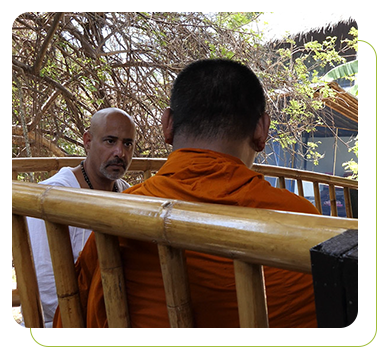What Is Ketamine Addiction? Causes, Signs & Treatment Options
05 min read

Introduction to Ketamine: Medical Use vs. Recreational Abuse
What Is Ketamine?
Ketamine is a powerful anesthetic and dissociative drug originally developed in the 1960s for surgical use. It gained popularity in human and veterinary medicine due to its rapid onset and safety profile. Today, it’s still used in clinical settings for anesthesia, pain management, and—more recently—for treatment-resistant depression in controlled environments.
Approved Medical Uses of Ketamine
Medically, ketamine is administered in low doses under strict supervision to help manage chronic pain or treat certain mental health disorders. Clinics using esketamine (a ketamine derivative) follow FDA protocols for dosing, safety, and follow-up care. The problem begins when ketamine is diverted from these medical uses into unregulated environments.
Rise in Recreational Use and Abuse
In recent years, ketamine has gained notoriety as a recreational club drug, often called “Special K.” Users seek its dissociative effects, hallucinations, and euphoric highs. However, repeated use outside a medical setting can lead to physical harm, psychological dependence, and addiction.
What Is Ketamine Addiction? Understanding the Basics
Is Ketamine Physically or Psychologically Addictive?
While ketamine may not produce the same physical withdrawal symptoms as opioids or alcohol, it is highly psychologically addictive. Users can quickly develop tolerance, leading to increased doses and compulsive use despite negative consequences.
How Ketamine Addiction Develops: Tolerance, Cravings, and Dependence
Initially, users may only take ketamine occasionally. Over time, the brain adjusts, needing more of the substance to achieve the same effects—a process known as tolerance. Cravings follow, often paired with behavioral patterns of escapism, emotional numbing, or thrill-seeking.

Causes and Risk Factors of Ketamine Addiction
Biological & Genetic Risk Factors
Some individuals are genetically predisposed to substance use disorders. An imbalance in neurotransmitters like dopamine or glutamate may increase vulnerability to addiction.
Psychological Contributors: Trauma, Depression, and Anxiety
People with untreated trauma or mental health conditions are at a higher risk. Ketamine’s dissociative effects provide temporary relief from emotional pain, but they don’t address the root causes.
Social and Environmental Influences
Easy access, peer pressure, and exposure in nightlife or rave scenes can normalize ketamine use, especially among young adults.
Signs and Symptoms of Ketamine Abuse
Behavioral Warning Signs
Frequent absences from work or school
Secretive behavior or lying about substance use
Financial struggles or legal problems
Neglect of responsibilities or hygiene
Physical and Psychological Effects
Confusion or memory loss
Slurred speech and motor impairment
Paranoia or hallucinations
Anxiety, depression, or mood swings
How to Recognize Addiction in Loved Ones
If someone appears detached, avoids eye contact, or isolates themselves, they might be struggling. Sudden behavior changes, weight loss, and erratic moods are all red flags.

Health Risks and Long-Term Effects of Ketamine Abuse
Cognitive Decline and Memory Impairment
Chronic use impairs memory, learning capacity, and executive function. Studies indicate changes in the brain’s NMDA receptor activity, which affects neuroplasticity and cognition.
Bladder Damage and Other Physical Complications
Prolonged use can cause ketamine-induced cystitis—a painful condition involving bladder inflammation, frequent urination, and, in severe cases, irreversible damage.
Mental Health Impact: Anxiety, Paranoia, Dissociation
Psychologically, users may develop depersonalization, emotional numbness, or even ketamine-induced psychosis. These symptoms can persist long after the drug wears off.
Treatment Options for Ketamine Addiction
Medical Detox: What to Expect
While ketamine doesn’t cause intense physical withdrawal like opioids, detox can still be emotionally challenging. Symptoms may include depression, fatigue, confusion, and intense cravings. Holina provides medically supervised detox with compassionate staff to ease this transition.
Behavioral Therapies: CBT, DBT, EMDR
Evidence-based therapies like Cognitive Behavioral Therapy (CBT), Dialectical Behavior Therapy (DBT), and Eye Movement Desensitization and Reprocessing (EMDR) are key to rewiring unhealthy thought patterns and processing trauma.
Holistic and 12-Step Integration
At Holina, clients follow a structured 12-Step program supported by holistic treatments—breathwork, yoga, meditation, art therapy, and aqua tuning—to heal mind, body, and spirit.
Inpatient vs. Outpatient: What’s Right for You?
Inpatient care at Holina offers a full-service, immersive healing environment. Outpatient services may work for those with supportive home environments and less severe addiction.

Why Choose Holina Rehab for Ketamine Addiction Recovery?
Personalized Programs and Therapeutic Modalities
Each guest receives an individualized treatment plan. The team tailors therapies to suit each person’s addiction history, psychological profile, and personal goals.
Stunning Koh Phangan Location and Luxury Facilities
Holina’s seaside campus on the tropical island of Koh Phangan offers private villas, detox suites, and sunset views—fostering a serene space for healing.
Long-Term Recovery Support and Aftercare
Clients are supported beyond the program with aftercare coaching, relapse prevention planning, and peer connections that help them sustain sobriety.
Real Case Study: Recovery Journey at Holina
Background of the Client (Anonymized)
“J,” a 29-year-old graphic designer from London, started using ketamine recreationally during music festivals. Over 3 years, it became daily use.
Treatment Plan and Milestones
J’s recovery included medical detox, group therapy, EMDR, and aqua tuning therapy. By week 5, emotional stability and hope returned.
Outcome and Reintegration
After completing the 12-week program, J returned home with a structured aftercare plan. He remains sober today and mentors others entering treatment.
Frequently Asked Questions (FAQs)
What makes ketamine addictive?
Though it’s not physically addictive like heroin, ketamine leads to strong psychological dependence through reward system activation and emotional numbing.
How long does it take to detox from ketamine?
Typically, acute symptoms fade in 3–7 days, but psychological symptoms may take weeks. A structured program helps immensely.
Is ketamine addiction reversible?
Yes—with proper care, therapy, and support, individuals can fully recover from ketamine dependency.
Can I quit ketamine on my own?
It’s risky. Without support, relapse is common. Supervised detox ensures safety and higher success rates.
Does insurance cover ketamine rehab?
Depending on the country and policy, some insurers may cover parts of inpatient treatment. Holina’s admissions team can help clarify options.
How is Holina different from other rehabs in Thailand?
Holina uniquely blends clinical therapies with Eastern healing, water-based treatments, luxury living, and personalized attention in a breathtaking location.
Conclusion: Seeking Help for Ketamine Addiction
Taking the First Step Toward Recovery
Acknowledging a ketamine problem is the hardest but most important step. Whether you or a loved one is struggling, you don’t have to do it alone.
Contact Holina Rehab
Holina offers not just treatment—but transformation. Our doors in Koh Phangan are open for those ready to get “Back to Yourself.”
📞 Call: +66 (0) 626 418 369
🌐 Visit: holinarehab.com
About Me
Ian Young
Ian Young is the Global Manager at Holina Care Centres in Koh Phangan, Thailand. Ian oversees the rehabilitation programs that blend the 12 Step model, Psychology, Counselling, Coaching, Somatic and many other therapeutic engagements, alongside various evidence-based therapies with holistic healing practices. Holina Rehab treats addictions, trauma, anxiety, depression, and other emotional challenges, offering comprehensive care in a serene resort environment. Ian, a charismatic speaker and author of “It’s Not About Me” leveraging his own recovery journey from addiction to inspire and guide others toward a fulfilling, addiction-free life.
Recent Blogs
-
29 Nov, 2025
The Power of Community in Addiction Recovery





























